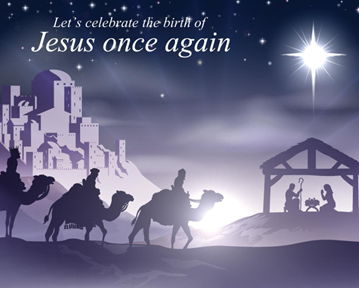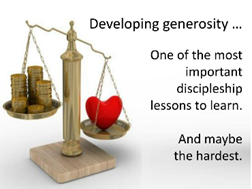WAYS
TO GIVE
In churches, we often rely primarily
on tithes and offerings. But there are many different ways to give. This doesn’t
mean, by putting cash in the offering plate, or writing a check or paying
electronically. I mean, why do people give?
There are three basics to an effective
giving system at a church:
- ·
Operating
- ·
Capital
- ·
Planned Giving
All three of
these must be utilized and in effect for a church to have a good system in
place.
I’ve talked
about this before, but people give because lives are transformed. People give,
not to the church, but to the work of God. If your church isn’t transforming lives
or doing the work of God, people won’t give. Consider over the next four
Sundays, telling a story each Sunday of a life transformed. If you struggle to
come up with these, then you should revisit the mission and vision of your
church. Are lives actually being transformed?
How people
give is also important. For some, they give from what they receive in their
payroll or other income. Others give from assets that they’ve saved up. Don’t
assume that people on a fixed income can’t give. They may have assets put
aside. Talk with people about giving to the church upon their death. If the
church was important to give to while they were alive, is it important to give
beyond? Have planned giving discussions. Communicate information about it.
Don’t
assume that someone with a large salary has disposable income sufficient for
substantial gifts. Perhaps conversation about debt control, financial planning
and budgeting would be helpful.
For anyone
who has ever volunteered or worked at a church, you know there are times when
something physical is going to go wrong. A boiler can cease working, tile comes
off the roof, there’s a water leak. So many things can go wrong, and, many
times, there isn’t enough money in the checking account to be able to have it
fixed right away. That leads to capital giving. Usually, we think about capital
campaigns related to new buildings or something substantial. But it should be
more than that; there should be a way to raise funds that can be set aside for
these types of needs.
But there
are other ways to give, even now.
For many of
our retired folks, there are required minimum distributions (RMD), where they are required to take a minimum amount from their retirement every year. For
some, they don’t really need the money, but they have to take it out anyway.
Tax law allows them to transfer directly from their retirement account to a
non-profit, a/k/a church. The income doesn’t appear on their tax return
(reducing taxable income which can help deductions and other tax results). Of
course, the charitable deduction isn’t claimed either, but, for many, itemized
deductions isn’t beneficial.
It is so
important to consider all of these things, WHY, HOW, WHERE, etc.
The need
shouldn’t be the need of the church to receive, but the need of the giver to
giver. If we don’t give them the ability and ways to give, we are doing them a
great disservice.
---
Please
feel free to contact me at (315) 427-3668 or susanranous@unyumc.org if you’d like to talk
about doing a financial or giving analysis of your church or about setting up a planned
giving plan.































